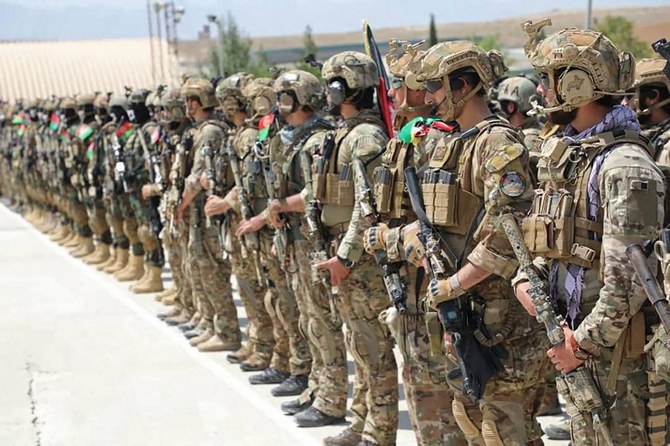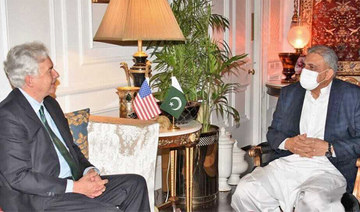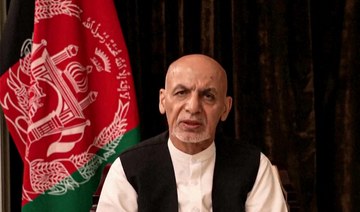LONDON: A former interpreter who worked with British soldiers in Afghanistan is helping a group of around 400 Afghan special forces personnel escape to the UK.
Rafi Hottak, 35, who now lives in Birmingham, is putting together details of the elite soldiers of Commando Force 333, which is thought to have been set up and trained by the British Army, to pass on to the British government.
As well as the soldiers of CF 333, Hottak has also compiled the names and details of around 200 other interpreters and former employees of the government seeking refuge in the UK, in a bid to pressure Whitehall into helping them.
“They’ve served the British government for 20 years, they deserve a life without fear of being killed,” Hottak told Sky News.
“These special forces were the frontline against all those terrorist groups. Leaving them behind, I see it as a failure of the UK government, a betrayal of these brave soldiers. They deserve to live a life of dignity and safety.”
Hottak had to flee Afghanistan himself in 2011 after receiving threats from the Taliban owing to his working with British forces.
Since the fall of Kabul, the father of three has put his job on hold, working with contacts in Afghanistan to locate and communicate with his countrymen still at risk.
“The Taliban will look at them as a threat to their regime in the near future, and then they will be hunted down and killed,” he said.
“Every single message I receive is that: ‘We will be killed, we are living in hiding, we are not in our villages, we are not in our homes.’ One of the guys was saying in the past two weeks ‘I have been shifting around different relatives and families.’”
He added that, with their livelihoods now gone and unable to seek work for fear of discovery, they were also finding it increasingly difficult to support their families.
“One of the interpreters sold his bicycle to get food for the family for those few days. That is how desperate the situation is,” Hottak said.
A spokesperson for the Ministry of Defence told Sky News: “We will continue to do all we can to support those who have supported us, and our commitment to those who are eligible for relocation is not time-limited and will endure.
“The [Afghan Relocations and Assistance Policy] scheme remains open to applications, and we will continue to support those who are eligible.”


























